 1999 Renault Megane I Grandtour (Phase II, 1999) Dimensions, Size & Specs
1999 Renault Megane I Grandtour (Phase II, 1999) Dimensions, Size & SpecsMeasurements of the 1999 Renault Megane I Grandtour, engineered for optimal performance and comfort
| Dimensions | |
|---|---|
| Length: | 4437 mm174.7 in14.6 ft |
| Width: | 1698 mm66.9 in5.6 ft |
| Height: | 1420 mm55.9 in4.7 ft |
| Trunk Capacity: | 485 liter17.1 cu ft |
| Trunk Capacity (Max): | 1285-1600 liter45.4-56.5 cu ft |
| Weight Specifications | |
| Curb Weight: | 1125-1240 kg2480-2734 lbs |
| Maximal permitted Weight: | 1660-1775 kg3660-3913 lbs |
| Roof Load: | 80 kg176 lbs |
| Tire Specifications | |
| Rims Sizes: | 14-inch rims:
|
| Tire Sizes: |
|
The Renault Megane I Grandtour Phase II, produced from 1999 to 2003, represents a practical station wagon option in the compact car segment. Measuring 4437 mm (174.6 inches) in length, 1698 mm (66.8 inches) in width, and 1420 mm (55.9 inches) in height, it offers an ideal balance of size for urban driving and family use. The vehicle's curb weight ranges from 1125 kg to 1240 kg (2480 to 2734 lbs), with a maximum permissible weight between 1660 kg and 1775 kg (3659 to 3913 lbs), ensuring a sturdy yet efficient build. One of the key advantages of the Megane I Grandtour is its generous luggage capacity. With the rear seats upright, it provides 485 liters (17.1 cubic feet) of storage space, which significantly increases to a range between 1285 and 1600 liters (45.4 to 56.5 cubic feet) when the rear seats are folded down, catering to the demands of larger cargo. The roof can support a load of up to 80 kg (176 lbs), adding versatility for carrying additional items such as roof boxes or sport equipment. The car is equipped with rim sizes ranging from 5.5J x 14 to 6.0J x 15 inches, coupled with various tire dimensions including 175/65 R14, 175/70 R14, 185/55 R15, 185/60 R15, and 185/60 R16, offering flexibility in wheel setup based on performance and comfort preferences. Overall, the Renault Megane I Grandtour Phase II stands out as a well-sized, versatile station wagon suitable for families and those seeking reliable cargo space without sacrificing maneuverability.
Discover the standout features that make the 1999 Renault Megane I Grandtour a leader in its class
Have a question? Please check our knowledgebase first.
The Renault Megane I Grandtour (Phase II, 1999) measures 4437 mm (174.6 inches) in length, 1698 mm (66.8 inches) in width, and 1420 mm (55.9 inches) in height. These dimensions position it as a compact station wagon, offering a good balance between interior space and maneuverability in urban areas.
The curb weight of the Renault Megane I Grandtour (Phase II, 1999) ranges between 1125 kg and 1240 kg (2480 to 2734 lbs), depending on the specific configuration and trim. The maximum allowed weight that includes passengers and cargo is between 1660 kg and 1775 kg (3659 to 3912 lbs), which ensures safe load-carrying capacity for everyday use and longer trips.
This Renault Megane station wagon provides a practical luggage capacity of 485 liters (17.1 cubic feet) with the rear seats up, making it suitable for grocery runs and luggage for a few passengers. When the rear seats are folded down, the space significantly increases to between 1285 and 1600 liters (45.4 to 56.5 cubic feet), enhancing its utility for larger cargo and bulky items.
The roof load capacity of the Renault Megane I Grandtour (Phase II, 1999) is rated at 80 kg (176 lbs). This means the vehicle can safely carry roof racks, cargo boxes, or bike carriers up to this weight limit without compromising driving stability or roof structural integrity. It's ideal for additional outdoor gear or luggage on family trips.
This Megane generation supports a variety of rim sizes including 5.5J x 14, 6J x 15, and 6.0J x 15. Tire sizes that fit these rims include 175/65 R14, 175/70 R14, 185/55 R15, 185/60 R15, and 185/60 R16. These variations allow for some customization based on preferences for driving comfort or performance.
With a width of 1698 mm (66.8 inches) and length of 4437 mm (174.6 inches), the Renault Megane I Grandtour (Phase II, 1999) should fit comfortably into a standard single-car garage, which typically accommodates vehicles up to around 2 meters wide and 5 to 6 meters long. The relatively compact height of 1420 mm (55.9 inches) also ensures easy vertical clearance.
Compared to the earlier Megane I Phase I Estate, the Phase II Grandtour version released in 1999 features slight refinements in dimensions, maintaining a similar length and width but with marginal improvements in height and interior space optimization. The Phase II typically offers enhanced aerodynamics and cargo management, resulting in better luggage capacity with rear seats folded, ranging up to 1600 liters compared to its predecessor’s somewhat lower figure.
In the late 1990s compact station wagon segment, the Renault Megane I Grandtour positioned itself competitively with a length of 4437 mm (174.6 inches) and a roomy luggage capacity of up to 1600 liters (56.5 cubic feet) with folded seats. Compared to contemporaries like the Volkswagen Golf Variant or Ford Focus Estate, the Megane offers comparable or slightly better cargo space while maintaining similar external dimensions, making it a practical choice for families seeking versatility combined with compact city-friendly size.
The Renault Megane I Grandtour (Phase II, 1999) offers practical advantages for families including spacious interior room and flexible cargo space. Its significant luggage capacity of 485 liters (17.1 cubic feet) expands dramatically to up to 1600 liters (56.5 cubic feet) with the rear seats folded, accommodating strollers, sports equipment, or luggage for long trips. The moderate curb weight between 1125 and 1240 kg ensures agility and reasonable fuel efficiency while offering safe carrying capabilities with a maximum weight up to 1775 kg.
The Renault Megane I Grandtour (Phase II, 1999) stands out from other station wagons of its era by combining a modern design refresh in Phase II with the practicality expected in an estate car. Its sleek yet functional body offers aerodynamic efficiency and a user-friendly layout, including ample luggage space and roof load capacity for outdoor gear. Additionally, the extensive range of wheel and tire options provides versatility to cater to different driving preferences, making it a well-rounded choice among compact wagons of the late 1990s and early 2000s.
Discover similar sized cars.
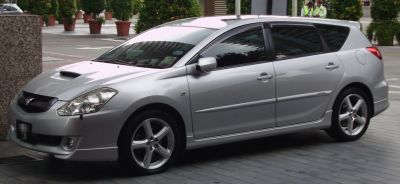
| Production: | 2002-2007 |
|---|---|
| Model Year: | 2002 |
| Length: | 4510 mm177.6 in |
| Width: | 1740 mm68.5 in |
| Height: | 1445 mm56.9 in |
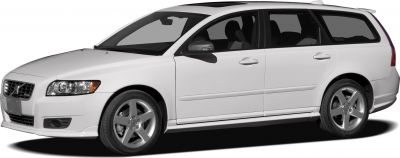
| Production: | 2007-2012 |
|---|---|
| Model Year: | 2008 |
| Length: | 4522 mm178.0 in |
| Width: | 2022 mm79.6 in |
| Height: | 1457 mm57.4 in |
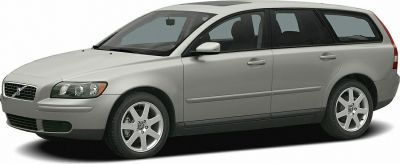
| Production: | 2004-2007 |
|---|---|
| Model Year: | 2004 |
| Length: | 4514 mm177.7 in |
| Width: | 1770 mm69.7 in |
| Height: | 1452 mm57.2 in |
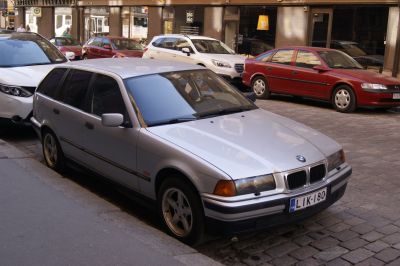
| Production: | 1993-2000 |
|---|---|
| Model Year: | 1994 |
| Length: | 4433 mm174.5 in |
| Width: | 1698 mm66.9 in |
| Height: | 1391 mm54.8 in |
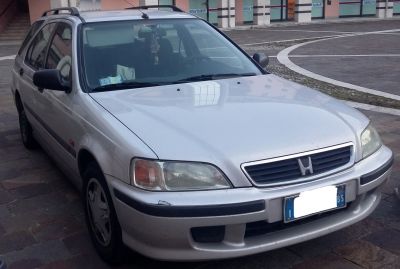
| Production: | 1998-2000 |
|---|---|
| Model Year: | 1998 |
| Length: | 4425 mm174.2 in |
| Width: | 1695 mm66.7 in |
| Height: | 1410 mm55.5 in |
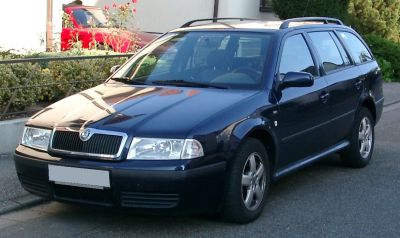
| Production: | 2000-2010 |
|---|---|
| Model Year: | 2000 |
| Length: | 4513 mm177.7 in |
| Width: | 1985 mm78.1 in |
| Height: | 1444-1481 mm56.9-58.3 in |
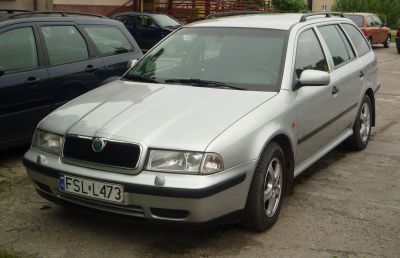
| Production: | 1996-2000 |
|---|---|
| Model Year: | 1996 |
| Length: | 4511 mm177.6 in |
| Width: | 1731 mm68.1 in |
| Height: | 1448-1481 mm57.0-58.3 in |
